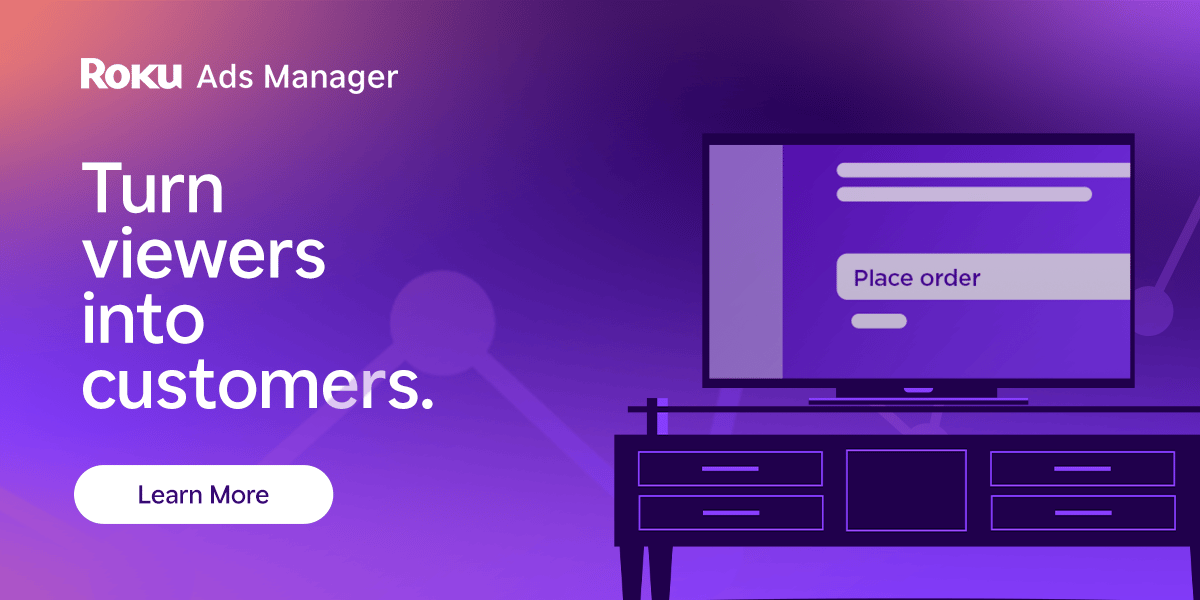Shoppers are adding to cart for the holidays
Over the next year, Roku predicts that 100% of the streaming audience will see ads. For growth marketers in 2026, CTV will remain an important “safe space” as AI creates widespread disruption in the search and social channels. Plus, easier access to self-serve CTV ad buying tools and targeting options will lead to a surge in locally-targeted streaming campaigns.
Read our guide to find out why growth marketers should make sure CTV is part of their 2026 media mix.
Wise Words: “Keep away from people who try to belittle your ambition”
Four years ago, my friend asked me if knew how to edit.
I had watched a few YouTube videos on editing and knew close to nothing but stupidly said, “Yes, I know how to edit well.”
Then he asked me, “could you edit my basketball video?”
Then I found myself saying I would edit the whole video within a week.
But I didn’t know there are thousands of buttons, effects, animations, and techniques that take years to master, and I had a week.
So, I went through a process of rapid testing and learning as I went. As the week progressed, I spent 3 hours every day creating videos and following along with tutorials.
At the end of the week, I finished the video in a few hours and thought it was great. (It was actually terrible, but it got the job done)
But what I realized was I learned way faster in that week of practice and testing than I ever would have if I kept watching tutorials or passively exploring tools.
How to learn skills faster than everyone else
#1 Focus on your weaknesses
Deconstruct the skill you are trying to learn. Break the skill down into different components and look at your weaknesses and what you need to improve.
Curated Example:

Source: madhav
By understanding your weaknesses and the separate components of the skills, you will have a good idea of what to focus on.
#2 Identify expert-practices
Figure out what the experts do to improve their skills.
A great way to identify the expert practices is to ask someone a few steps ahead of you how to improve your skills.
They understand what you are going through and will tell you the best-practices and exercises for you to improve.
#3 Match the skill to your level of difficulty
When you practice your skills, it should require all of your focus. It shouldn’t seem easy and mindlessly repetitive, but it also shouldn’t be so hard you constantly fail.
Find the zone where your knowledge matches the difficulty of the exercise. This is where you get the most growth and can get in the flow state.
Curated Example: This is very similar to progressive overload in weightlifting. You do an exercise where you can do the ideal number of reps (8-12) and increase the weight when your reach the upper limit. By constantly adding weight to match your strength level, you get the most muscle growth for each set of exercises you do.

Source: HomeTrainingHero
#4 Get high-quality feedback
Learn from your mistakes and get feedback on what you do. The higher the quality of the feedback, the better you are going to get at your skill.
Here are the four ways to get feedback:
Feedback through data: Use and record data to find how much time you put into doing each exercise/practice and what the results were.
Feedback from coaches/peers: Find someone more experienced than you and ask them to give feedback on what you can improve.
Self-Feedback: Document yourself and review your past work. This is the equivalent of an athlete reviewing game footage and looking at what they can improve.
Feedback through comparison: Look at an experts work and rewrite/rebuild their work. Then compare what they did differently from you.
Curated Example: Benjamin Franklin uses feedback through comparison to become a master of writing. He found the best publications and articles and wrote down the meaning of what they said. Then he rewrote the article in his own words and compared his version to the expert one.
Action step: create a plan to learn skills faster
Focus on one skill to improve. Set a timeline for how long you are willing to work on this skill.
Then, ask yourself:
What are my weaknesses?
What are the expert-practices and best ways to improve?
How can I match the exercises to my level of difficulty?
How can I get high-quality feedback?
Answering these questions turns the skill into a concrete plan that will make you learn skills faster than everyone else.
Recourse Spotlight
Everysize - See how your website looks in different sizes (mobile, computer, etc.)
Book Recommendation: Peak by Anders Ericsson & Robert Pool. A great book on deliberate practice and how to learn skills effectively. My rating for it is 5/5.
Keep on learning,
Warren
